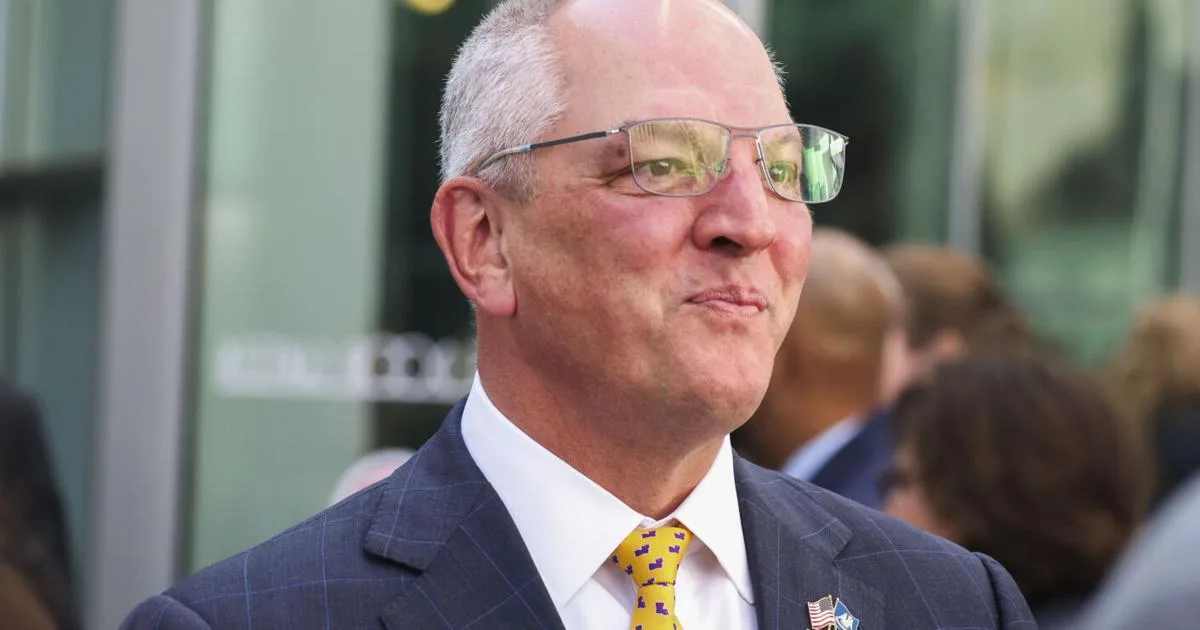
If state legislators are forced to adhere to a Jan. 15 deadline to redraw its congressional map, Gov. John Bel Edwards is likely to call them into special session before the year is out, he said Monday.
Though Gov.-elect Jeff Landry has pledged to call a special session after his Jan. 8 inauguration, the Jan. 15 date set by the 5th Circuit Court on Friday doesn’t give the incoming Legislature enough time to carry out the work because the new governor and Legislature have to wait at least seven days before they can hold a special session, Edwards noted.
He and state legislative leaders are trying to determine whether federal court Judge Shelly Dick will give the Legislature more days to draw the new congressional map beyond Jan. 15.
The 5th Circuit judges seemed to encourage Dick to do so, saying in their order that she “has discretion to provide modest additional time.” If Dick does, Edwards said he wouldn’t need to call a special session this year.
“I don’t yet know what I’m going to do,” the governor said.
Under the state constitution, the House and Senate also have the right to call themselves into a special session, but Senate President Page Cortez, R-Lafayette, said state legislators are unlikely to do so.
Cortez cited Saturday’s runoff elections, the Thanksgiving holiday, the renovation of the House and Senate chambers underway and the uncertainty of what would happen if lawmakers approved new congressional boundaries only to have Edwards veto them.
“We’re waiting to hear what Judge Dick would allow,” Cortez said.
At issue is a legal fight that could make or break political careers, including U.S. Rep. Garret Graves, who represents metro Baton Rouge; U.S. Rep. Julia Letlow, whose district includes north Louisiana and the Florida Parishes; U.S. Rep. Troy Carter, the lone Democrat whose New Orleans-based district extends to Baton Rouge; and state Sen. Cleo Fields, D-Baton Rouge, who political insiders say wants to run for the new Black-majority congressional seat.
The issue centers on whether the new map approved by the Republican-controlled Legislature last year for the state’s six congressional seats meets Voting Rights Act requirements. That map kept the basic lines of the current configuration, with five White-majority districts held by Republicans and one Black-majority district held by Carter.
Edwards vetoed the map, saying that in a state where one-third of the voters are African American, two of the congressional seats ought to have a Black majority.
State legislators then overrode the governor’s veto to impose their map. The NAACP Legal Defense Fund, the Power Coalition for Equity and Justice and nine individual plaintiffs sued to overturn the Legislature’s decision.
Dick ruled in their favor earlier this year and called on legislators to redraw the boundaries to create two seats that Black candidates could win.
Republican attorneys, including Attorney General Landry, now also the governor-elect, appealed Dick’s ruling to the 5th Circuit. The appeals court’s ruling seems to favor the civil rights groups and Democrats and was influenced by a recent redistricting order from the U.S. Supreme Court.
If the new Legislature gets the assignment to redraw the six congressional districts, the key players will be Landry, incoming Senate President Cameron Henry, R-Metairie, and Rep. Phillip DeVillier, R-Eunice, who with his chief rivals for the job announced Monday that he will be the new speaker.



